Painter Terry Gardner and sculptor Amy Laugesen came to Ann Korologos Gallery with the idea for this exhibition after visiting the Zapata Ranch in the San Luis Valley. This exhibition, Terry Gardner and Amy Laugesen: San Luis Valley Views depicts the experience of these artists on this active ranch, of being led by women on horseback to explore the sand dunes and Sangre de Cristos, of the changes in the industry and of the land. This exhibition explores the marriage of ranch life and the American West, of the nostalgia of the Old West juxtaposed to changes creating the New West – the hope found in these future generations of cowgirls, many of whom, we hear, are biologists or have degrees in conservation.
Enjoy this interview with Ann Korologos Gallery, Terry Gardner, and Amy Laugesen
Terry Gardner (TG): The American West reflects a nation’s image of itself, where reinvention and escape are part of the search.
Optimism and freedom are associated with pictures of the west, and it rings true today as it did 150 years ago.
Recent visits to the San Luis Valley in central Colorado inspired all of the work in the show, cowgirls being central to that experience. With all the challenges facing ranching and the lands of the west, there is so much to be optimistic about, especially when you engage with those working the ranches. For more than a century people moved west thinking it will be different, and it is. As the sun sets on one generation the aspirations of the next are alive and well. The west is a region that has been growing and changing since the opening of the frontier. The paintings of the valley are intended to take you beyond a west that was to a west that can be.
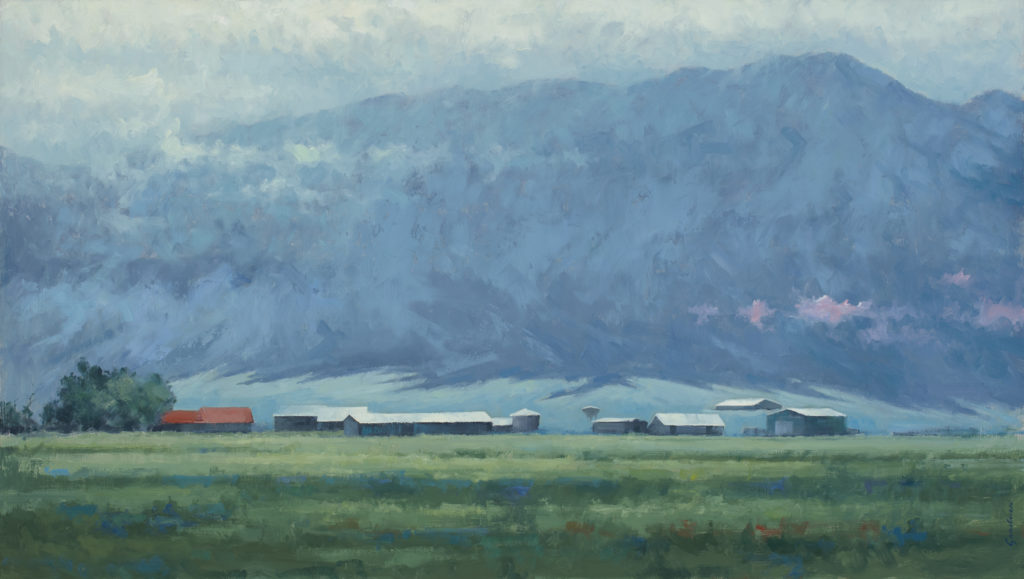
Amy Laugesen (AL): The San Luis Valley is now the place I call home, and the view from my Sangre de Cristo Mountain studio is awe-inspiring and humbling.
The horse is forever my muse, and I continue to seek their physical, historic and ethereal presence in the world around me. The process of discovering the essence of a horse within the mud, or the horse within the landscape, to transforming this into contemporary ceramic artworks remains my artistic passion.
The San Luis Valley Views collaborative exhibition with one of my favorite painters and friend, Terry Gardner, challenged me to translate my perspective of select macro and micro elements of this unique high alpine valley into sculptural form. You will see the horse is still represented in my artworks. Terry and I chose common threads in our subject matter to visually connect his paintings and drawings with my sculptures on display. We are excited to share our collective works and points of view of the Southwest San Luis Valley with the Northwest Colorado audience at the Ann Korologos Gallery.
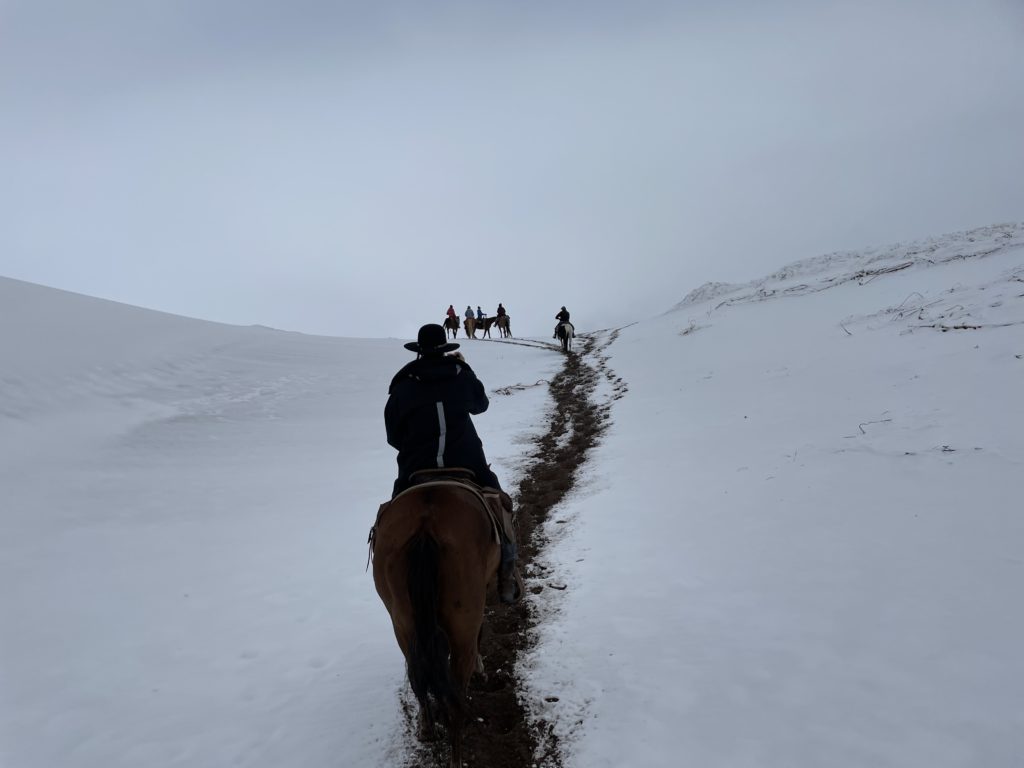
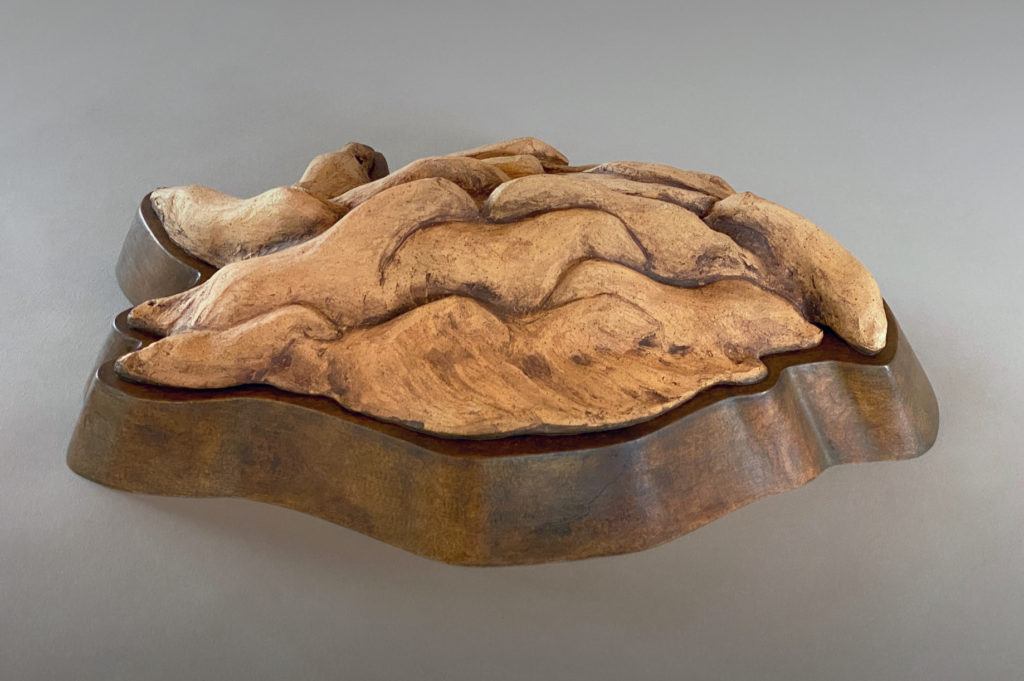
TG: The wide-open valley invites contemplation. It’s quiet, and distilling your work to reflect the open space requires editing.
AL: The land and the sky of the San Luis Valley are awe-inspiring. I feel humbled by its grandness. It’s challenging to translate the scale with small gallery size artworks. I feel my sculptures are a starting point for a conversation about this unique high alpine valley, horses and the ranch lands and ranching life. Subjects and palette were consciously used to express emotions and to make connections between Terry’s and my work.
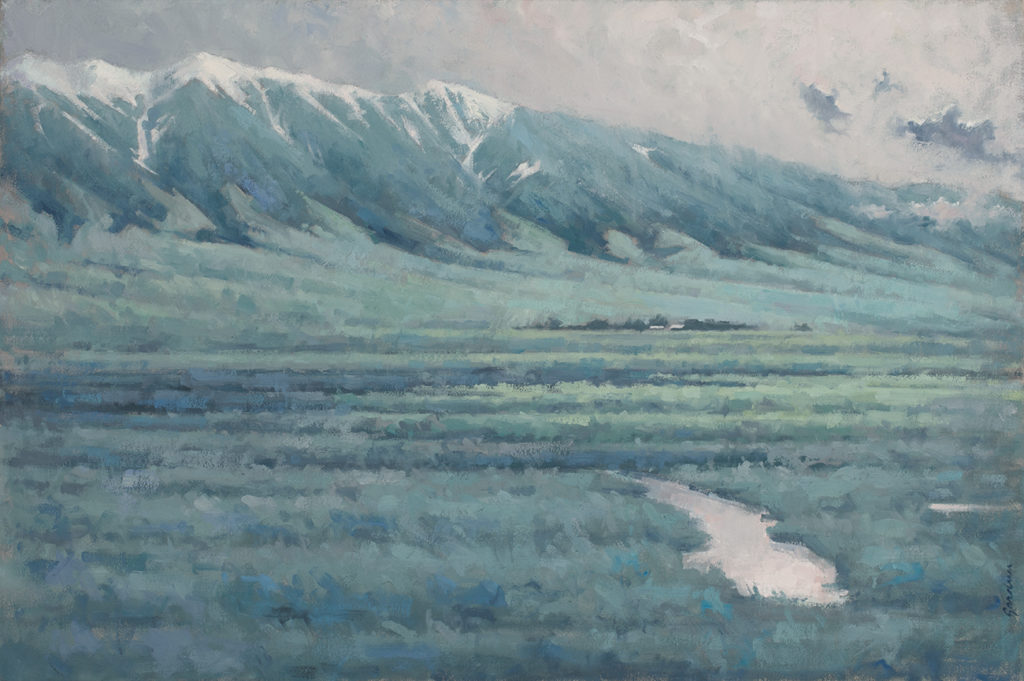
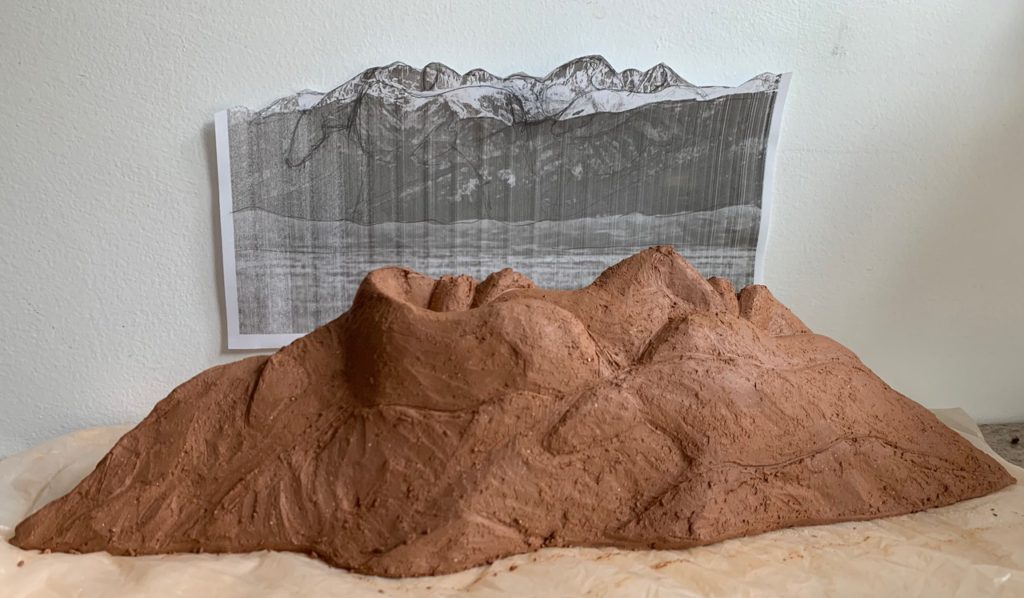
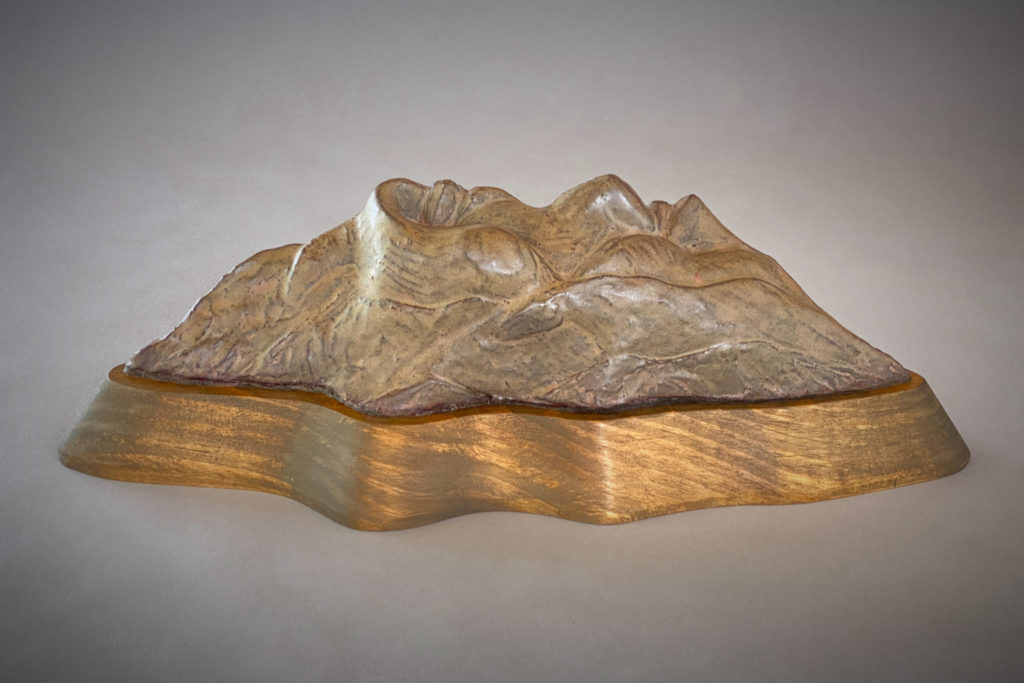
TG: You can hear yourself breathe. Your senses grow sharper when you escape populated areas. Not many choose this way of life, it can be frightening to those accustomed to busy living. Ranching and farming are the road less traveled, but for those who do choose this path, there is purpose and passion. I have grown to respect the ranch hands, especially the cowgirls who saddle up every day.
AL: For me, the San Luis Valley is now home and these places are in my ‘neighborhood.’ Creating these sculptures for the Ann Korologos Gallery exhibition has helped me connect to the land and these places in a profound way. Living here is a new chapter in my life, and I see it greatly influencing my work for years to come.
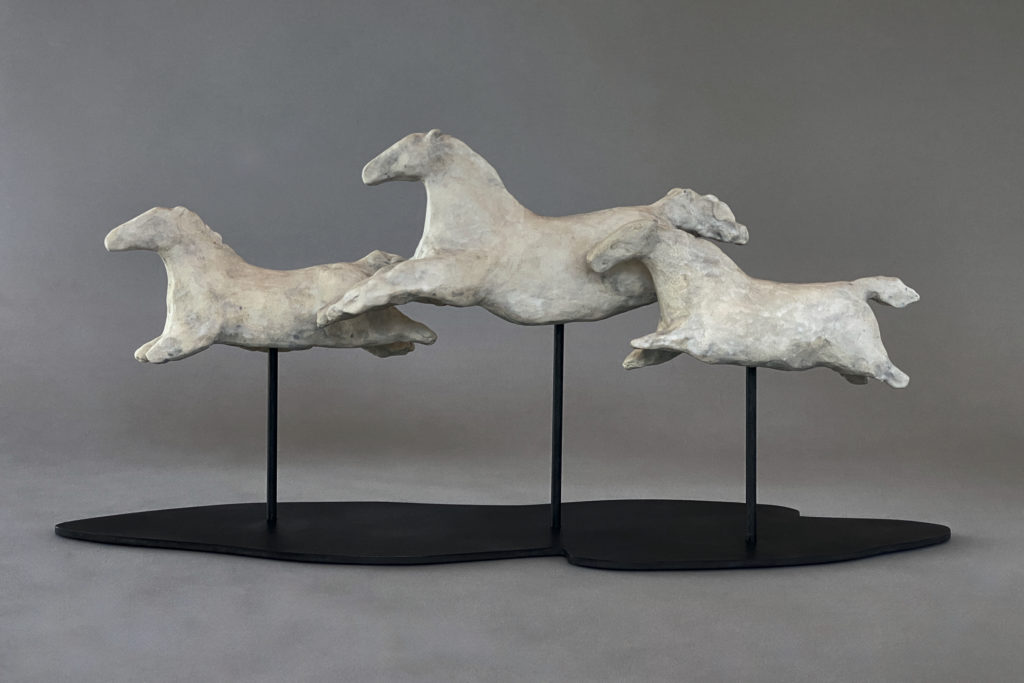
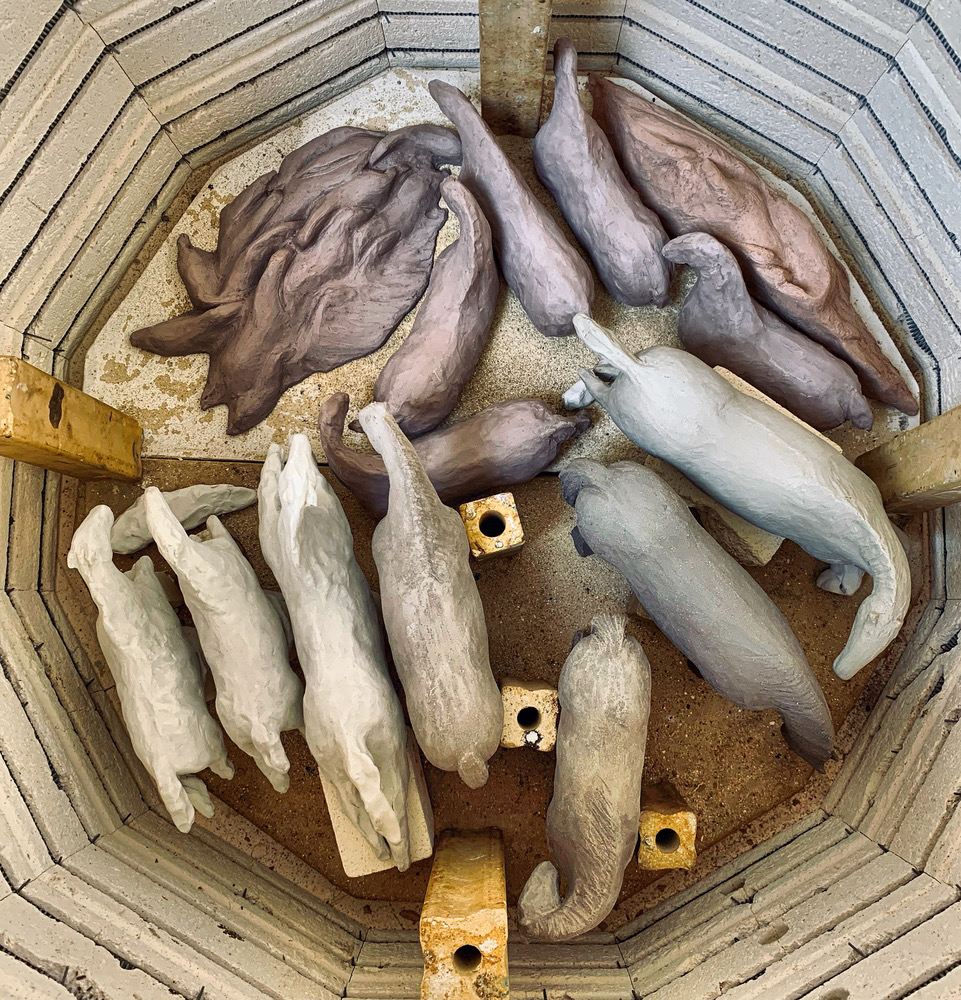

TG: They are a breed of horse with beautiful patterns. Paint horses are known to be strong, fast, and agile. I am intrigued by the black and white coats that stand opposite to nature’s colors.
AL: Terry and I both have been attracted to black and white Paint horses, so they became a thread to connect our artworks. These horses are seen as part of the landscape, and their coat pattern the light and shadows of the San Luis Valley. I love Terry’s charcoal drawings of the black and white Paint horses. The surface treatment on my ceramic ‘Paint’ horses were inspired by Terry’s charcoal drawings.
The title “Tobiano” defines the type of pattern of the Pinto and American Paint horse’s coat.
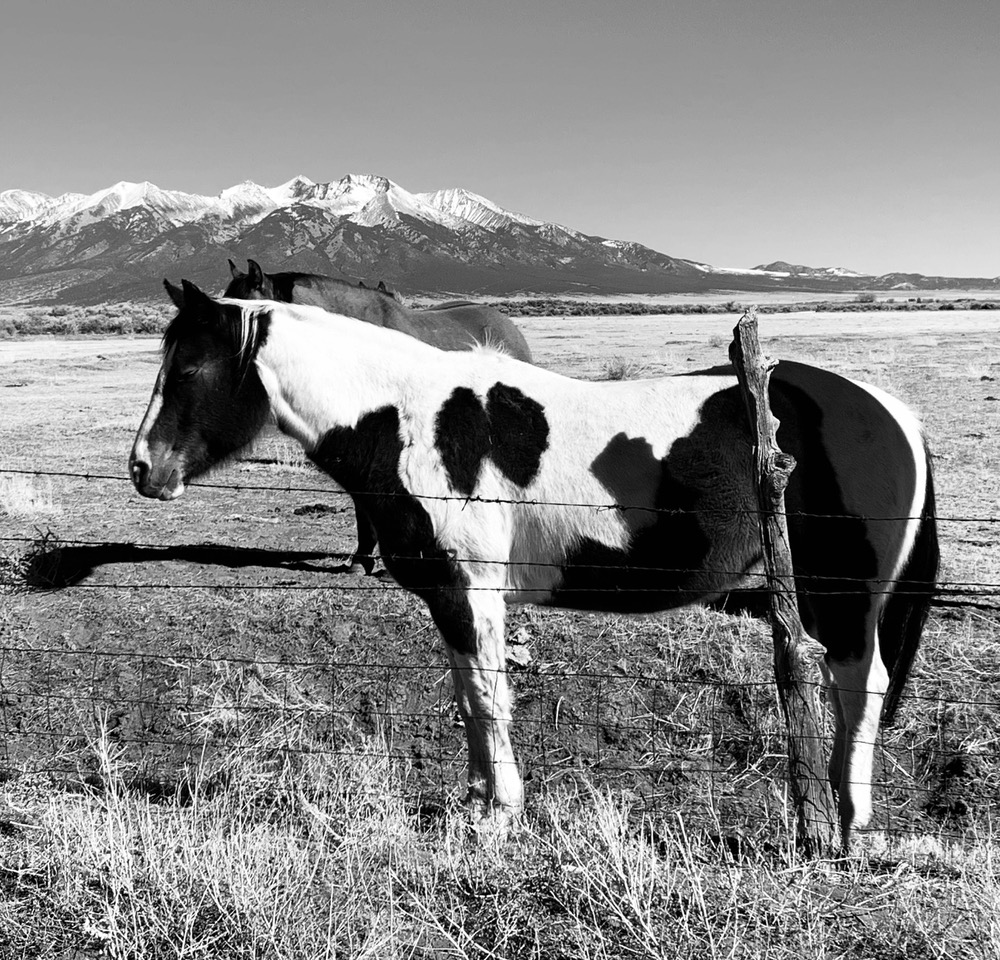
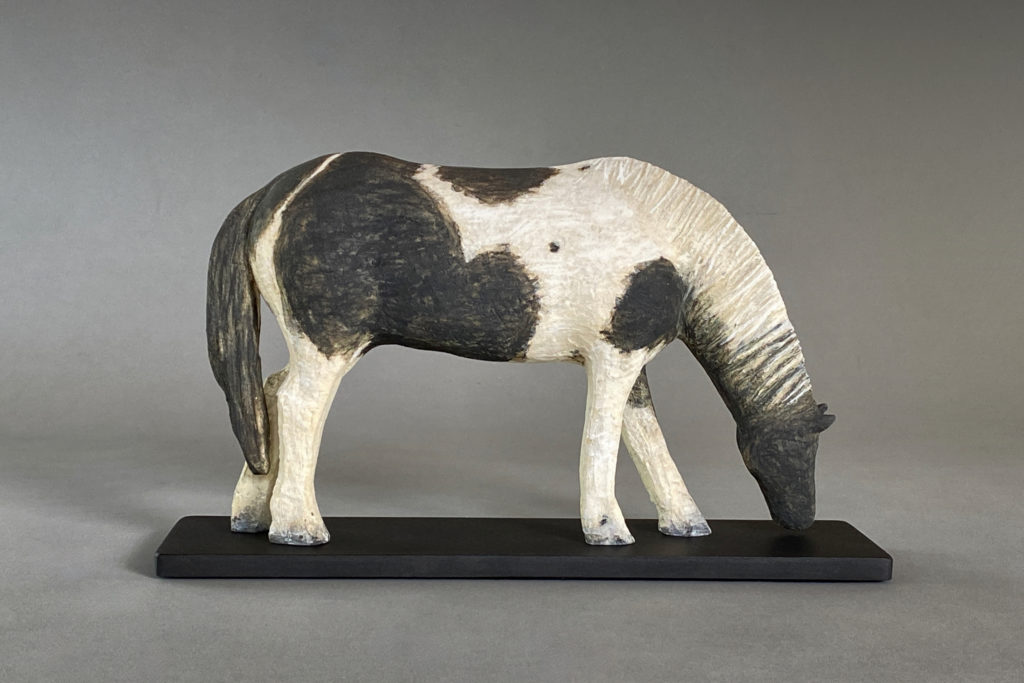
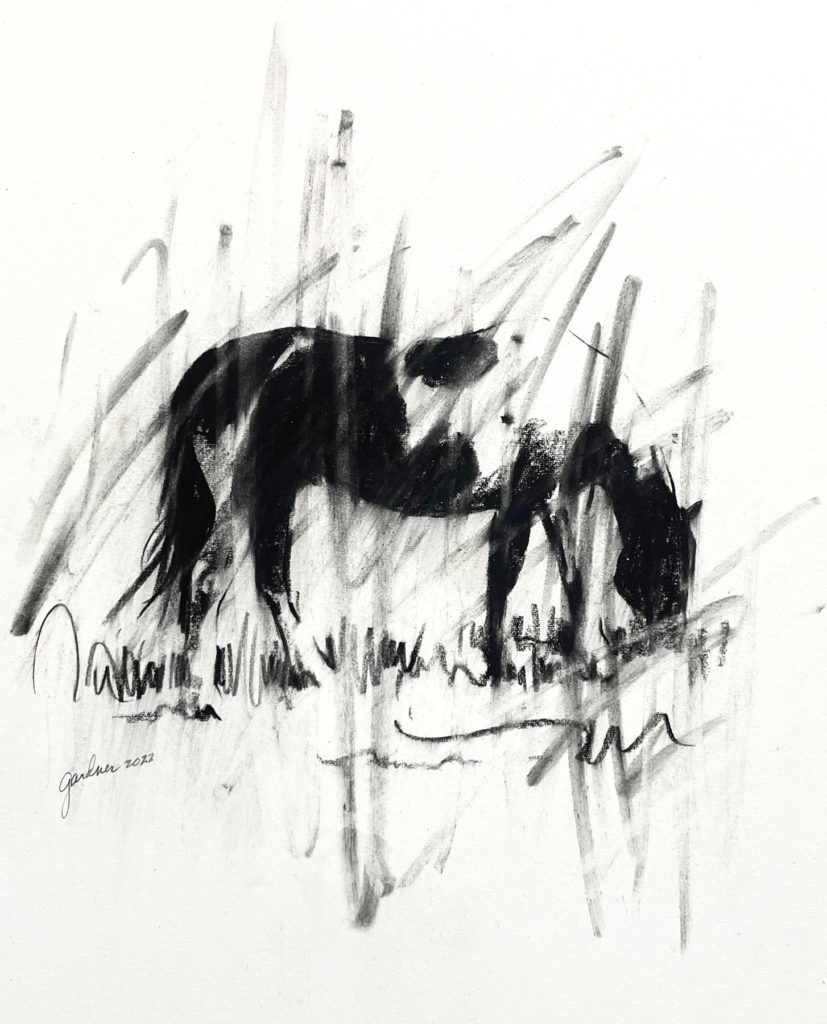
TG: The west is a mirror in which America sees itself. Ranching is symbolic to freedom and independence. Cowgirls are strong contributors to life on the ranch. Their role and freedom should not be underestimated, or limited. The more I visit ranches the more respect I have for the women who devote themselves to this way of life.
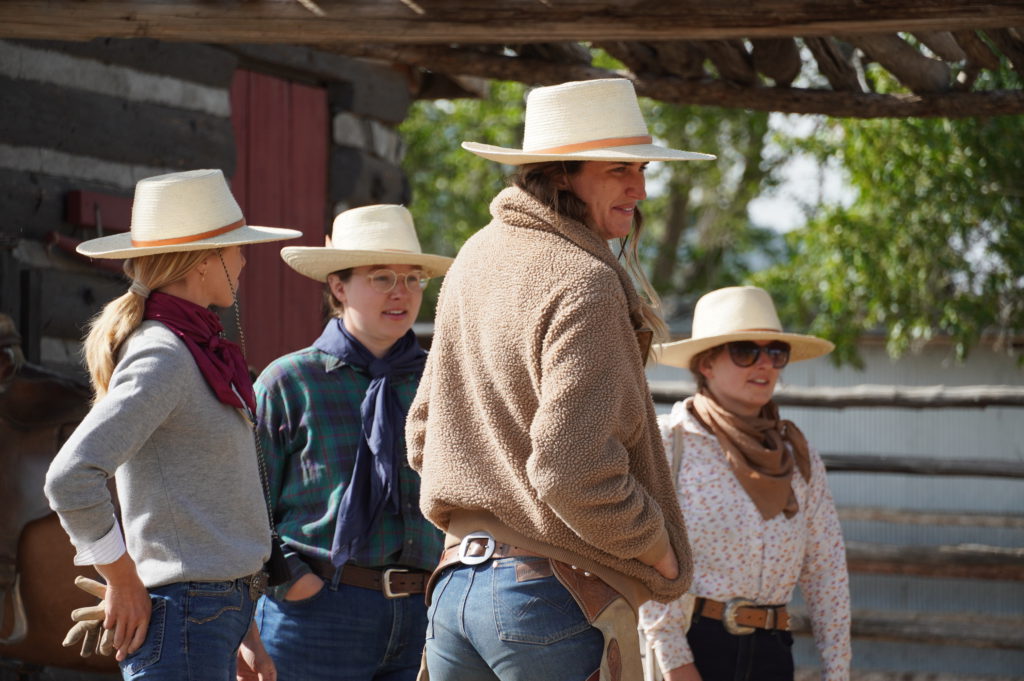
TG: In early films white hats and black hats were used to symbolize good versus evil.
This has changed over the years but the black hat still has a flavor of rebellion and determination. The black hat is highly distinguishable even when the character is viewed from behind.
AL: The Black Hat is inspired by Kate Matheson’s personal hat. Kate is the Zapata and Ranchlands Ranch Hospitality & PR Manager. Terry challenged me to sculpt a hat for this show.
What I learned in sculpting this hat is there is great power and subtle nuances in ones’ hat… each hat tells a unique story and carries a beautiful ‘patina’ of daily work and everyday life, especially if you are a fearless and hardworking Cowgirl like Kate. It was an honor to study and sculpt a small version of Kate’s hat for this show.
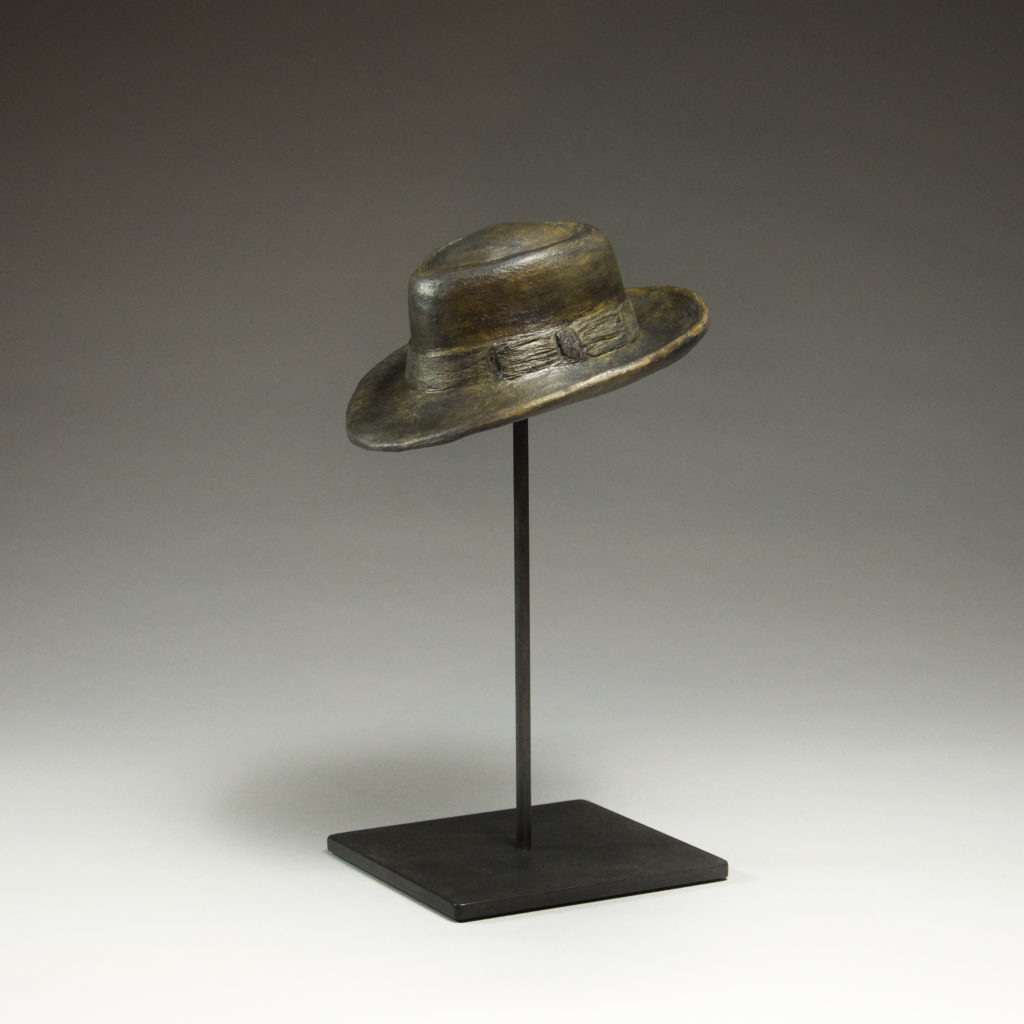
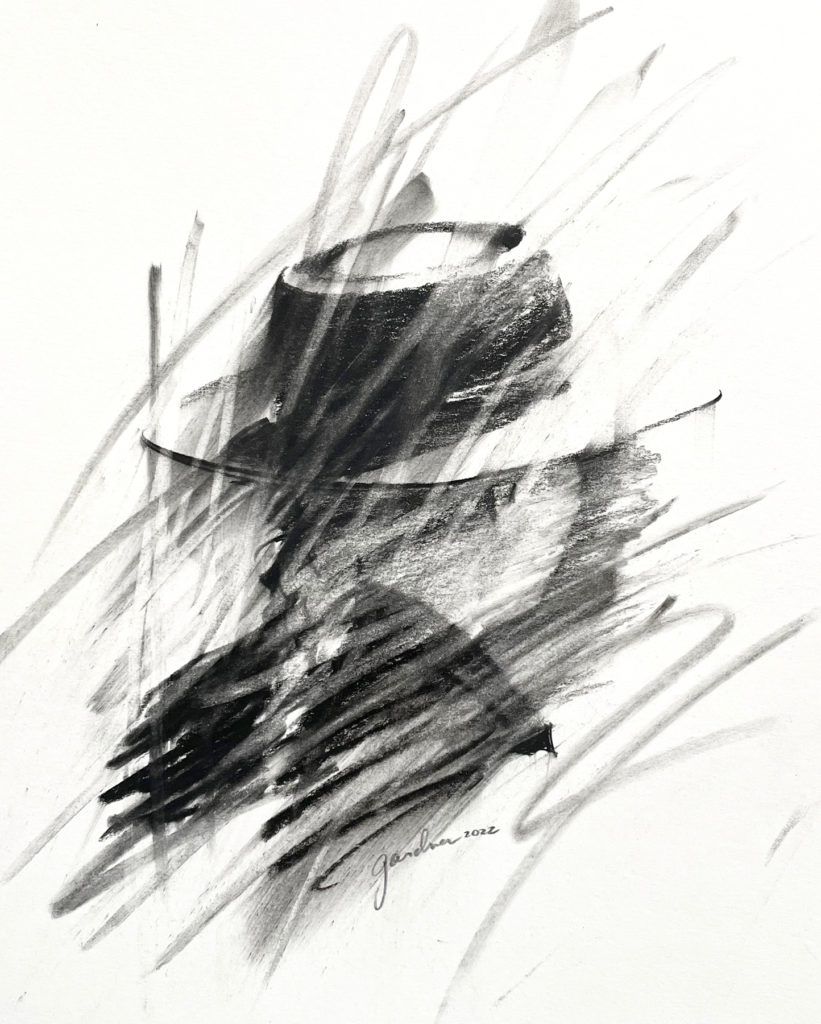
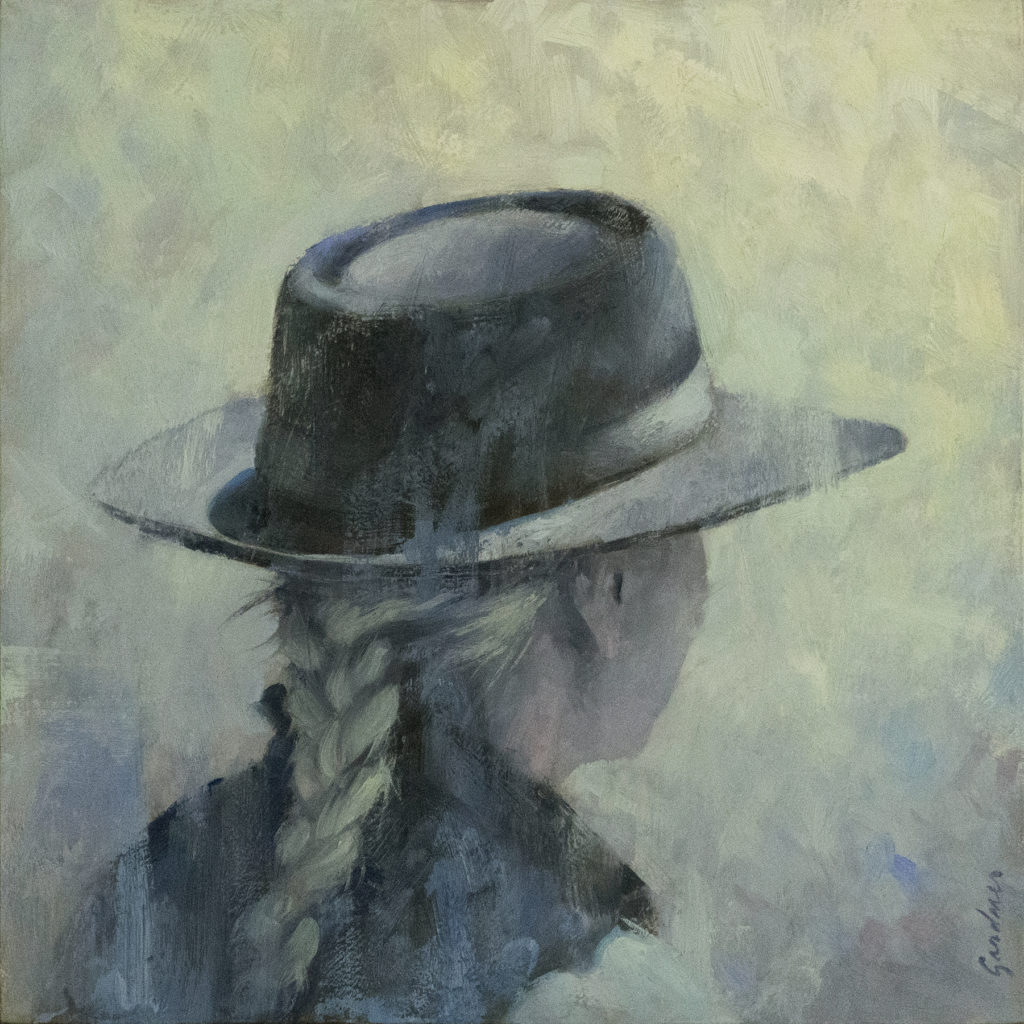
TG: Images of the west may seem historical or stereotyped, but there is a part of everyone who sees themselves in the saddle, free to roam. The saddle in this case is a metaphor, transporting the viewer to a way of life the American West has represented for hundreds of years, opportunity and independence. This way of life still exists, for now, and hopefully for many years to come.